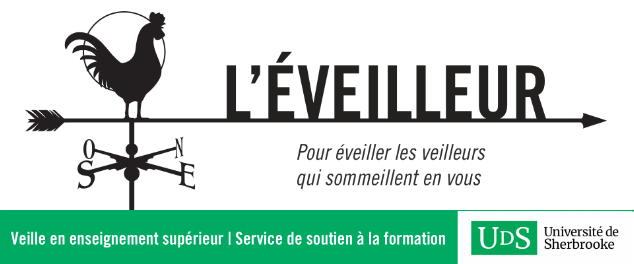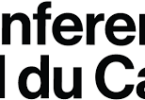Texte provoquant de Ron McGowan, consultant canadien de Vancouver, dans la dernière édition du University World News. En fait, il s’agit d’une version éditée de la préface de son livre How to Find Work in the Gig Economy. D’abord publié en 2000, le livre vient d’être réédité en 2019 avec de nouveaux chapitres et commentaires.
L’argument de base de McGowan, c’est que le marché du travail a changé significativement au XXIe siècle. Alors que nous formons toujours les étudiants dans la perspective d’emplois stables, nous serions entrés dans ce que plusieurs qualifient de “Gig Economy“, une économie faite d’emplois précaires et de contrats à plus ou moins long terme. Selon ses mots, “There is work available, but a lot of it is not packaged in the form of a job, as we traditionally understand that term.”
Or, les compétences requises pour se placer et s’épanouir dans un tel contexte sont fort différentes de celles qui prévalaient auparavant:
Today’s employment seeker must be more entrepreneurial and enterprising in his or her search for work than previous generations, and needs to be better at selling themselves. Acquiring self-marketing skills is a must, as is the ability to find hidden employment opportunities, since at least 80% of these today are never advertised.
Finally, employment seekers need to learn how to approach employers in a strategically effective way rather than the reactive, mostly passive approach used by people in the 20th century. And they must understand the role social media plays in finding employment today and how to use it effectively.
Quant à l’entrepreneuriat, McGowan estime comme d’autres qu’il ne s’agit aucunement d’une compétence limitée aux étudiants en gestion, mais qu’elle devrait être encouragée dans toutes les facultés [NDLR: Pensons au nouveau programme de l’École de musique…]:
We tend to equate anything related to entrepreneurship to be the domain of business or commerce and MBA students. We need to change that thinking and recognise that this also applies to graduates in the liberal arts, social sciences and every other sector in post-secondary education.
Le problème est évidemment que les institutions de formation ne sont pas organisées pour préparer les jeunes à cette nouvelle réalité. Il faudrait donc d’abord former les formateurs…
“There’s a huge disconnect between these bureaucrats, administrators and educators and their students in terms of their own work environment and the workplace their students are entering. And that disconnect will exist into the foreseeable future.
Going forward, we must find ways to educate those already in the education system about the challenges of earning a living in today’s workplace and hire people at all levels that have this type of experience. Only then can we realistically align the educational system with the needs of today’s graduates.”
Selon McGowan, il faut aussi consacrer beaucoup plus de temps et de ressources pour former les futurs diplômés à la recherche d’emploi et à l’orientation de carrière:
While there are a few examples of innovative thinking in this area, in the main, most colleges and universities are doing a poor job of preparing their students for today’s workplace. […]
Before they graduate, all students must be required to take workshops and courses provided by the career counselling department that educate them about today’s workplace and show them how to succeed in it. We also need people in these departments who are entrepreneurial, have operated their own businesses and who can adequately prepare students who want to pursue that option.
Il croit beaucoup à un relevé des compétences acquises par les étudiants au travers leurs expériences parascolaires:
Another useful tool for graduates and employers is the ‘co-curricular record’ or CCR, which is a second transcript that graduates receive which highlights their leadership and other skills they’ve developed in volunteer activities on and off campus. This is a very useful tool for employers to get a broader understanding of who graduates are and what they’ve achieved outside the classroom.
Source: McGowan, Ron, “Preparing students to find work instead of a job“, University World News, 8 juin 2019







C’est moi où il y a cette semaine un afflux de textes sur ce même sujet?
Ma collègue Francheska m’envoie ceci: Dene Poth, Rachelle, “How Educators Can Prepare for the Future of Work”, GettingSmart, 14 juin 2019
https://www.gettingsmart.com/2019/06/how-educators-can-prepare-for-the-future-of-work/
[Où on suggère aux enseignants différentes façons de rendre leurs cours plus pertinents pour les étudiants d’aujourd’hui.]
Kafka, Alexander C., “Want to Be a Happy Prof? Teach Kids How to Get Jobs”, The Chronicle of Higher Education, 2 juin 2019
https://www.chronicle.com/article/Want-to-Be-a-Happy-Prof-Teach/246417?utm_source=wb&utm_medium=en&cid=wb
[Une entrevue avec Bill Coplin, directeur du programme de 1er cycle en affaires publiques, de la Maxwell School of Citizenship and Public Affairs de l’Université Syracuse]
Et cela:
https://store.chronicle.com/collections/reports-guides/products/career-ready-education?utm_source=wb&utm_medium=en&cid=wb
Un rapport sur la _Career-Ready Education_, où d’entrée de jeu on affirme:
“Colleges can meet the changing demands of the economy without being overreactive or reductive. Our new report will help you lift students’ prospects over the course of their working lives.”
Tant mieux si nos futurs entrepreneurs et employés seront mieux équipés pour s’épanouir et jouer un rôle significatif dans notre société en changement.
Par contre, je croyais que nous étions dans un marché où les ressources se font de plus en plus rares et que le gros bout du bâton appartenait aux chercheurs d’emploi! Est-ce que ce revirement de situation serait causé par la volatilité des nouveaux travailleurs? Est-ce que la rareté de l’offre ferait se réinventer la demande?
Personnellement, je pense que le prochain défi du marché du travail en sera un de souplesse de pensée et d’expression. Il deviendra un splendide terrain de jeu pour les personnes polyglottes et les représentants de 2 ou 3 cultures cumulées.